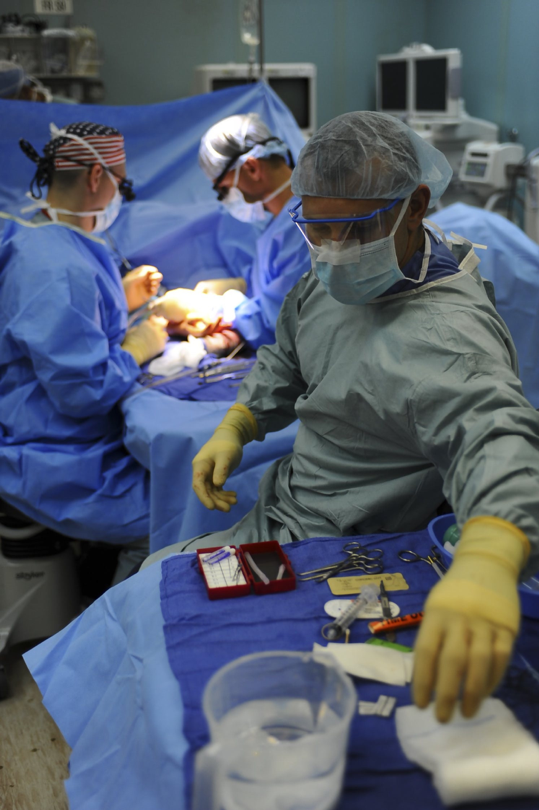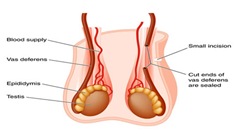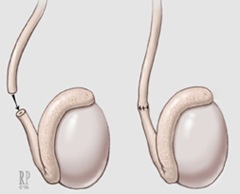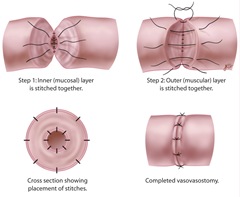What are the age risks with a vasectomy reversal? In this day and age, several men often leap on to a “rushed” judgment and get a vasectomy, which is a method to avoid unwarranted births permanently. In fact, it’s one of the most common procedures that urologists perform.
With time, different experiences shape men in unexpected ways. And those unexpected set of experiences influence your pre-conceived “judgment” to reverse your vasectomy for good. Contrary to misguided perception, 1 out of each 20 men with vasectomy ultimately wants a reversal surgery.

Theoretically and practically, you can get a vasectomy reversal at any age. However, your final decision to go through the process requires you to undertake certain considerations. For instance, the vasectomy reversal success rate among older men is similar to younger individuals.
Though a man’s age doesn’t finalize the success or failure, you need to be aware of certain conditions that might apply to you in a vasectomy reversal:
Age Limitation with Vasectomy Reversal
You can be 30 and 50 and still choose to go through a vasectomy reversal process. If you meet the criteria and check all the boxes, you are practically accepted as a patient. However, your age might have an impact on the recovery from the procedure. Most men who have had a vasectomy, on the other hand, can have a reversal at any specific time in their life.
Learn About the Time Factor
A man’s age might not be a primary element for a successful vasectomy reversal surgery, but an extended period can, in fact, affect the recovery and transition. In time, there’s a distinct possibility that you might develop pressure between the vas deferens after your vasectomy reversal surgery.
Mostly, this pressure doesn’t turn into any complications. However, your surgeon might have to utilize a more sophisticated technique for a successful process.
-
How is Vasovasostomy Different?
Vasectomy method is comparatively more common than Vasoepididymostom. It’s applicable when a urologist sees sperm’s presence in the central vassal fluid. Consequently, the procedure is simple and includes the rejoining of the cut vas deferens. If you had a vasectomy ten (10) years ago, urologists could conduct the surgery at a 90% success rate.
-
What about Vasoepididymostom?
When sperm is not present in your vassal fluid because of another blockage, a more complicated procedure is required to rejoin the vas deferens. In simple terms, the blockage in the vassal fluid is spotted and mitigated from the epididymis. It does, however, require an experienced urologist to perform such complex surgery. If you had a vasectomy ten years ago, you’d have a 70% probability of success under Vasoepididymostom in the U.S.
What Older Patients Need to Know
Older patients should consider their health problems before undergoing vasectomy reversal surgery. Find out which factor might lead to a complication after the procedure. Typically, risk elements might be about your bleeding issue, systemic disease, or failed immune system. Now, these complications don’t necessarily exist in older individuals, but the fact remains that older patients pose more health risks as compared to younger individuals.
-
Success Ratio of Your Vasectomy Matters
A vasovasostomy has a success rate of 90% in American patients. Vasoepididymostomy, on the other hand, has a success rate between 40 and 50%. For example, if you had your vasectomy ten years ago, there’s a 40% probability that your doctor will recommend a vasoepididymostomy method during a vasectomy reversal.
-
The Age of Your Partner
Although your age does not impact your vasectomy reversal, its transition might get off-balance with increasing age of your partner. The fact is, men should be careful about their partner’s age. In fact, men should pay close attention when a woman’s fertility starts to decrease. And that’s because women in their 30s tend to have weak fertility. It can create even more problems if your partner is reaching into her 40s. Remember, the male biological clock changes from man to man.
-
Analyze Your Collective Health Problems
Many men often have to bear the burden of a disease at some age. Despite the nature and severity of the risk, you must prioritize your decision before the surgery. Also, talk to your doctor about your medical record and try to understand your probability of success before undergoing a vasectomy reversal.

Conclusion
If you are thinking about vasectomy reversal at the age of 50 or older, it’s better to communicate with your urologist. An experienced urologist would ask you to prepare comprehensive documentation of your medical history. Concurrently, you should also devise the questions that you want to ask the doctor. A conversation can help you get a clearer picture of the vasectomy reversal procedure.
Better to Be Safe than Sorry: Schedule an Appointment
Your goal should be to understand different elements that might affect your vasectomy reversal procedure. Accumulate information and analyze the decision again. A professional doctor, for instance, would instantly inform you about any negative result from your vasectomy reversal surgery.
Consult an appointment with Dr. Yaniv Larish and convey your questions about the vasectomy reversal procedure. Call us at (646) 862-5500 or email us. Don’t hesitate to contact other renowned doctors to discuss vasectomy reversals and health problems.



